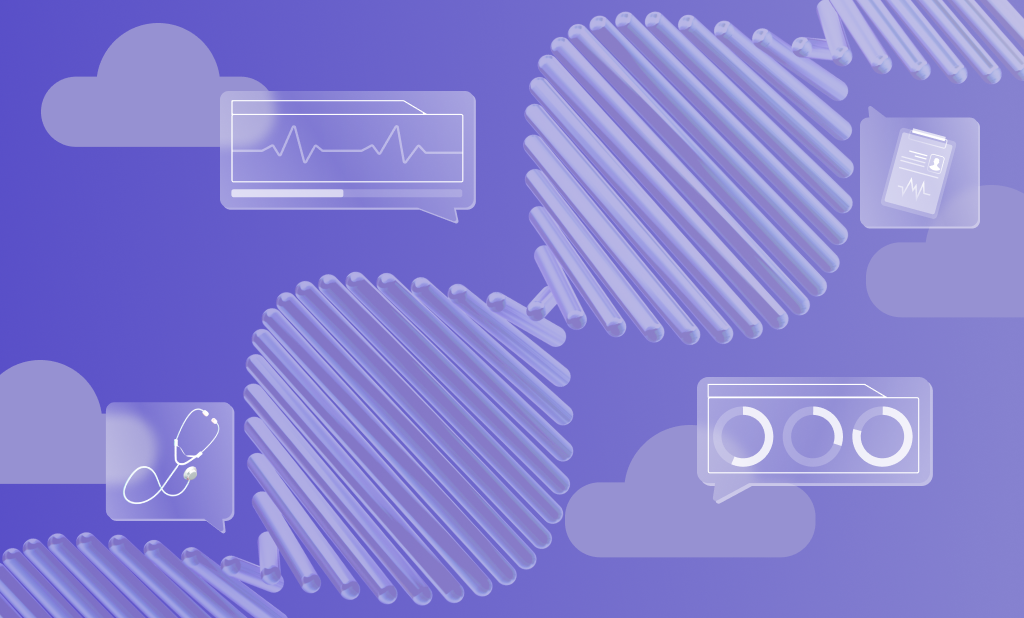In the healthcare industry, integrating practice management with cloud services has become more important than ever. Cloud technology offers a multitude of benefits, from enhanced data storage solutions to improved care delivery and security measures, and much more.
In this article, we will explore the various aspects of integrating Practice Management Systems (PMS) with cloud services and how they can positively impact patient outcomes and overall efficiency.
Better Data Storage & Management
The volume of healthcare data continues to grow exponentially, making effective data storage crucial for healthcare providers. Cloud services provide scalable and flexible data storage options that can adapt to evolving needs. The ability to store vast amounts of patient information securely and access it from anywhere at any time is a game-changer for healthcare organizations.
Keeping any patient data on premise is a big liability. You need to have processes and strategies in place for backups, disaster recovery, increasing disk space, and much more. For many small-scale deployments of patient management systems, the role of data storage management is often outsourced to another small vendor, making that a further bottleneck. Using cloud services gets rid of these bottlenecks altogether.
Data Management Protocols
Efficient data management practices enhances data integrity, reduces errors, and improves overall decision-making.
Data Storage in the cloud allows administrators of Practice Management Systems a way to define processes for data entry, maintenance, and analysis. These processes can further be monitored, tweaked, and changed from anywhere without any technical assistance. Administrators of Practice Management Systems can create specialised training programs that work for their staff and then correspondingly put checks and balances in place to ensure data management protocols facilitate the data flow.
Better Data Security & Availability
Data security is critical for patient management systems. You must have seen news about data breaches where patient information was taken or made public.
Cloud services come with base level of cyber security in place. These security measures help an attack. Furthermore since cloud service providers constantly update their service offerings you have a team of developers working in the background constantly updating cloud services to help you safeguard your patient data.
Another aspect of cloud based services is that you can implement access control. This ensures that only authorized personnel can access sensitive patient information. This can involve using multi-factor authentication, role-based access controls, and more.
Data Encryption
Encryption is key to safeguarding patient information and meeting compliance and regulatory requirements. It ensures that data is unreadable to unauthorized individuals and entities, protecting your systems from cyber threats.
Several cloud service providers offer encryption capabilities tailored explicitly for healthcare systems. These include key storage, encrypting data at rest, certificate management, identity management, HIPAA compliance, and more. Cloud vendors have these baked into the services they offer. AWS also provides a HIPAA compliance infrastructure and offers Business Associate Agreements (BAA) to healthcare customers.
Regular Data Backups
Regular data backups are crucial to mitigating potential data loss. Cloud services offer automated and seamless backup processes that protect healthcare organizations from the risk of losing critical patient information due to hardware failures or other unforeseen events.
By regularly backing up data, healthcare providers can ensure data availability and minimize downtime during system failures, ultimately improving patient care and organizational efficiency.
Better Care Delivery
Practices don’t exist in silos. They work with different vendors/departments, this may include diagnostic labs, specialized testing labs, or more. Having your Patient Management System connected to the cloud allows you the flexibility to collect data through APIs.
Furthermore it also enables your systems to adopt the latest technological advancements to deliver better care. Here are a few that come to mind:
- Telemedicine: Cloud providers have APIs in place for you to setup a telemedicine practice easily. Several vendors also provide platforms for telemedicine. Being in the cloud gives you the flexibility to quickly adopt these new forms of delivering care.
- Virtual Reality: VR technology services are another great integration point to allow providers to improve care delivery. A really nice use case is therapy. Using VR you can provide a near in person experience to a patient who is seeking therapy.
Keeping up with the changes in Healthcare Technology
The landscape of healthcare technology is constantly evolving, offering new opportunities and challenges for healthcare organizations. Integrating practice management with cloud services allows providers to stay at the forefront of these advancements and maximize their benefits.
Cloud services are a central component of emerging trends in healthcare technology. From the Internet of Medical Things (IoMT) to machine learning and predictive analytics, cloud-based practice management systems enable healthcare organizations to harness the power of these technologies for improved patient care.
By embracing these emerging trends, healthcare providers can enhance operational efficiency, improve diagnoses, and empower patients to take an active role in their healthcare.
In Conclusion
Integrating healthcare practice management with cloud services offers numerous benefits, from enhanced data storage solutions to improved care delivery and security measures. By leveraging the scalability and flexibility of cloud technology, healthcare organizations can optimize their operations, streamline administrative processes, and ultimately improve patient outcomes.
We can help you identify the relevant opportunities to incorporate modern web services and standards for health information exchange, such as HL7 and FHIR, enabling systems to interoperate with other modern health information exchange technologies from the medical software industry. If you’d like to learn more about our services book a free consult here.






